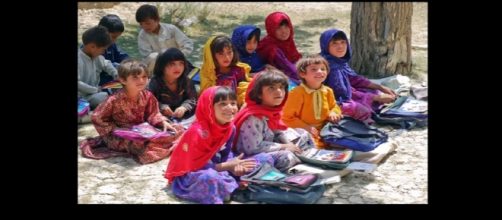Every Child is expected to pass through these stages of development. The first one is the identification stage, followed by the fascination stage and many other stages follow.
Identification stage
According to Brookings Edu, at this stage, children recognize the mother or caregiver figure so start playing adult from the tender age of 3 to 4 years. This is an age when they like to be like their parents so they play at things they see their parents do, like going to work, tending house, cooking, caring for other children and so many other things. It is more than just playing but also how a child’s basic ideas and attitudes are laid down, though it will be modified later as they become more mature and knowing.
It is how they learn to be the kind of parents they are going to become in the future.
Fascination stage
This is a stage where a child realizes that he or she is on the way to becoming a man or woman so they decide to pattern themselves after a parent of the same sex. A boy will often want to pattern himself like his father, how he feels towards his wife, the female gender generally or towards every other person. Although this fascination is of the same sex, there is also a degree of identification with the parent of the opposite sex. Children become fascinated with all aspects of babies as they want to know where they come from when they find out that babies grow inside their mothers. They are eager to carry out the act of making babies too.
They will press a younger child into the role of a baby or use a doll and spend time acting as a father or mother.
Romantic stage
According to a paper by Gary L. Grogan: McNair Scholar, until this stage, a boy's love for his mother has been predominantly of a dependent kind, but now it also becomes increasingly romantic, like his father’s.
At about four years he may be saying things like he wants to marry his mother, not even being sure of what marriage is all about but because he sees his mother as the most important and appealing woman on earth.
Also, the little girl who is growing normally in her mother’s pattern develops the same kind of love for her father.
These strong romantic attachments help children to grow spiritually and acquire wholesome feelings toward the opposite sex that will later guide them into good marriages. This development most times creates tension in children when a child of about 3 or 4 years becomes more possessive of a parent of the opposite sex. Like a boy has a possessive devotion towards his mother so he becomes irritated knowing how much she belongs to his father, how much she loves and admires his father. He sees his father as a rival and wishes he would get lost. Reasoning as a child he imagines that his father is likewise jealous and resentful towards him.
A little girl that is developing normally, has the same possessive love towards her father and wishes to have him all to herself though she loves her mother very much.
She still sees her as a rival and at times wishes she would get out of her way. She believes her mother feels the same way towards her which may be a source of worry to her.
A child may try to push these feelings out of his or her mind, but this feeling of jealousy, love, and fear towards parents are the main cause of bad dreams little children have of being chased by giants or frightening figures. All little children are believed to go through these developmental stages. Parents should not worry unless a child becomes excessively fearful or antagonistic to the parent of the same sex or too close to the parent of the opposite sex. In that case, the help of a child psychiatrist is needed.
Let me know your opinion through comments and watch out for the next article on child/parent romantic attachment.e


